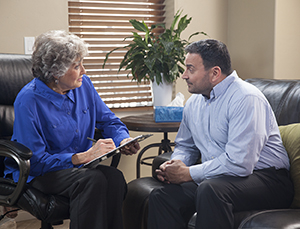Treating Schizophrenia
The symptoms of schizophrenia are severe and ongoing. They can disrupt the lives of both the person with the illness and their family and friends. The symptoms can cause a lot of suffering. But treatment may help. Treatment is most often lifelong. It includes both medicine and counseling (psychotherapy). It may also involve help with social, work, and life skills.
Medicines
Medicine is a key part of treatment. Antipsychotics can help ease symptoms. They also may prevent future problems. But they can have side effects. Some people stop taking their medicines to avoid them. But this can cause their symptoms to come back. If your loved one has problems with medicine, tell their doctor. Changing the dose or type of medicine may help. Your support and caring can help a loved one stay with treatment.
Counseling (psychotherapy)
A therapist can help your loved one deal with problems caused by schizophrenia. Therapy may focus on healing relationships or coping with the disorder. A therapist can also provide emotional support. They can offer individual, group, and family counseling. Which one depends on their specialty and provider license.

Coordinated specialty care
Coordinated specialty care is a treatment that focuses on easing symptoms. It aims to improve the quality of life for the person. It combines care from different types of specialists. It can include medicines, psychosocial therapies, and case management. Treatment can also get the family involved. It can offer education and help with finding a job. Ask your health care providers if this type of treatment is available in your area.
Social services
Some people with schizophrenia may not be able to work. They also may lack basic life skills. For instance, they may not know how to shop or manage money. Some may not be able to care for themselves. Certain providers can help them learn these skills. There are special places your loved one can live if you can't care for them. These include halfway houses and group homes. They are safe places for your loved one to start building a new life. Agencies can help with their needs, such as improving life skills and finding housing.
Looking ahead
Research into schizophrenia is ongoing. This may lead to improved treatments in the future. There is always hope for a better life.
Online Medical Reviewer:
Daphne Pierce-Smith RN MSN
Online Medical Reviewer:
Marianne Fraser MSN RN
Online Medical Reviewer:
Sravani Chintapalli Researcher
Date Last Reviewed:
5/1/2025
© 2000-2025 The StayWell Company, LLC. All rights reserved. This information is not intended as a substitute for professional medical care. Always follow your healthcare professional's instructions.